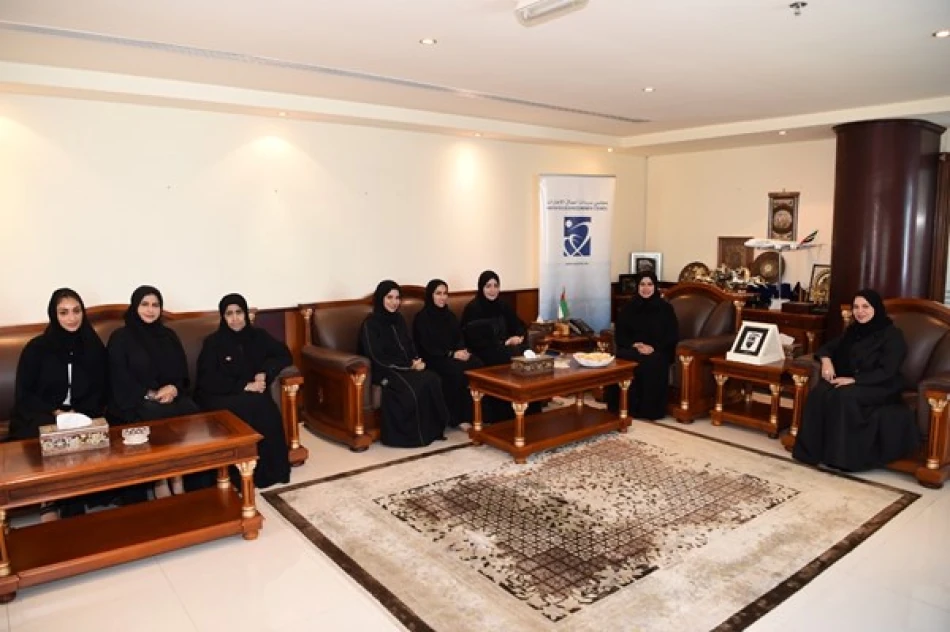
Emirati Businesswomen Unveil Plan to Empower Women's Role in National Economy
UAE Businesswomen's Council Launches Ambitious Gender Parity Drive to Power Economic Vision 2071
The UAE Businesswomen's Council has kicked off its seventh term with a bold strategic agenda aimed at achieving true 50-50 gender balance in the nation's economy. Under new leadership, the council is positioning itself as a catalyst for the UAE's ambitious Vision 2071, leveraging women's entrepreneurship to maintain the country's competitive edge in a rapidly evolving global marketplace.
Strategic Reset Aligns with National Economic Transformation
The council's inaugural meeting in Dubai marked more than a routine leadership transition. Chairwoman Aisha Mohammed Said Al Mulla emphasized that the new term represents a "great national responsibility" to cement the UAE's position as a global hub for innovation and sustainability. This timing coincides with the UAE's broader economic diversification efforts, as the nation seeks to reduce oil dependency and build knowledge-based industries.
The strategic plan unveiled during the meeting focuses on expanding Emirati businesswomen's participation across all economic sectors, with particular emphasis on preparing them for regional and international competition. This approach mirrors successful models in Singapore and South Korea, where targeted women's entrepreneurship programs have contributed significantly to national competitiveness rankings.
Institutional Framework Gets Major Overhaul
The council has introduced a new charter and restructured its operational framework, establishing specialized committees to ensure integrated efforts across different economic sectors. Dr. Amal Abdullah Al Hadabi, First Deputy Chairwoman, announced plans for innovative training programs designed to prepare the next generation of Emirati businesswomen for global economic shifts.
This institutional strengthening reflects lessons learned from other Gulf states. The UAE's approach appears more comprehensive than Saudi Arabia's recent women's empowerment initiatives, focusing not just on participation but on leadership development and international competitiveness.
Market Implications and Economic Impact Potential
The council's renewed focus comes at a critical juncture for the UAE economy. With the country hosting COP28 and positioning itself as a sustainable finance hub, women-led businesses could play a crucial role in capturing emerging green economy opportunities. Research from McKinsey suggests that achieving gender parity in the workforce could add $12 trillion to global GDP by 2025 – a figure the UAE appears determined to capitalize on.
Dr. Amna Khalifa, Second Deputy Chairwoman, emphasized creating an "enabling business environment" built on innovation and sustainability principles. This language suggests the council will integrate with broader UAE initiatives like the National Strategy for Advanced Innovation and the Circular Economy Policy 2031.
Regional Leadership Ambitions
The council's vision extends beyond domestic impact, positioning itself as a "national leadership platform" that represents Emirati businesswomen's interests globally. This ambition reflects the UAE's broader soft power strategy, using economic diplomacy to enhance its international influence.
Unlike neighboring countries that have focused primarily on removing barriers to women's participation, the UAE's approach emphasizes active leadership development and international market penetration. This strategy could provide significant first-mover advantages in emerging markets across Africa and Asia, where UAE businesses are already expanding.
Implementation Challenges and Success Metrics
The council's success will largely depend on its ability to translate ambitious rhetoric into measurable outcomes. Key performance indicators likely include the number of women-led businesses accessing international markets, participation rates in emerging sectors like fintech and renewable energy, and representation in senior corporate positions.
The seventh term's composition includes experienced leaders from various sectors, suggesting a practical approach to implementation. However, the real test will be whether these initiatives can maintain momentum beyond the current leadership term and adapt to changing global economic conditions.
As the UAE prepares for its centennial vision in 2071, the businesswomen's council represents both a commitment to gender equality and a strategic economic bet. Success could position the UAE as a model for other developing economies seeking to harness women's entrepreneurship for national competitiveness.
Most Viewed News

 Layla Al Mansoori
Layla Al Mansoori






